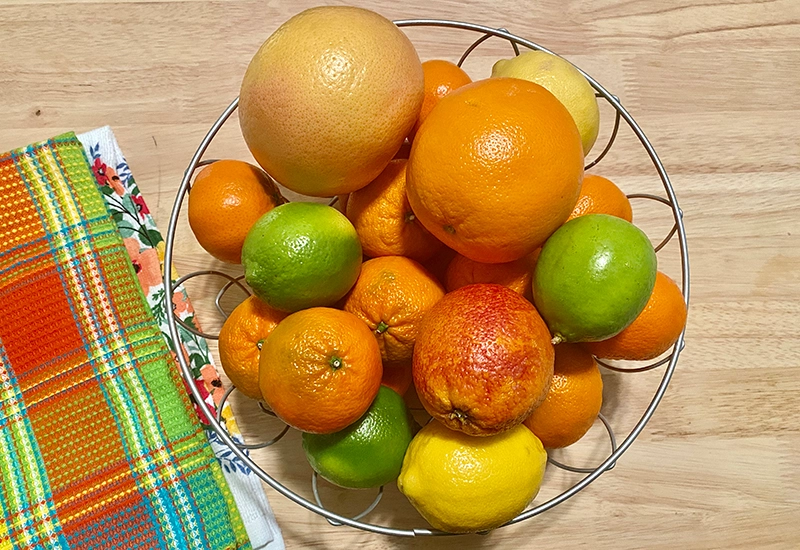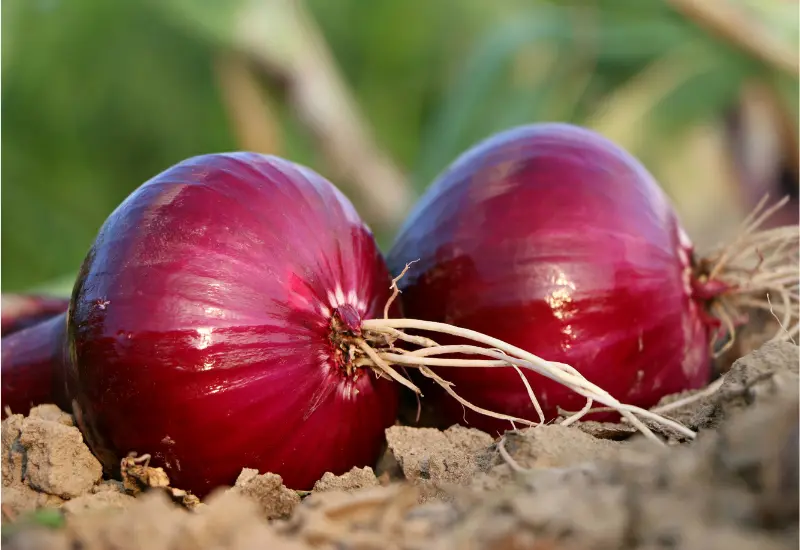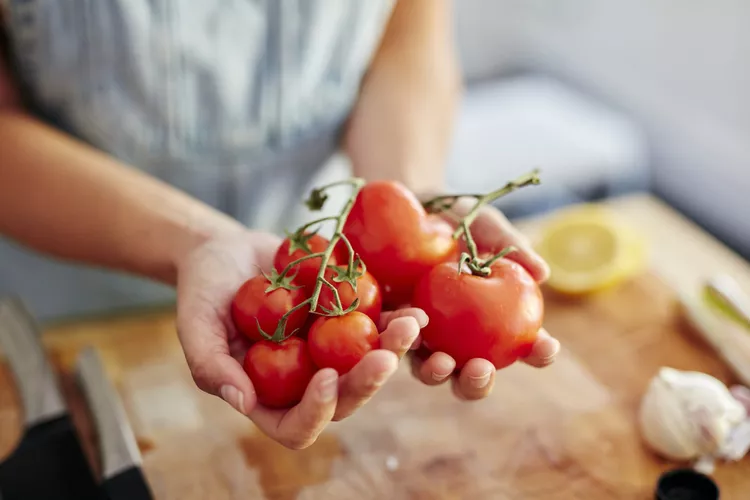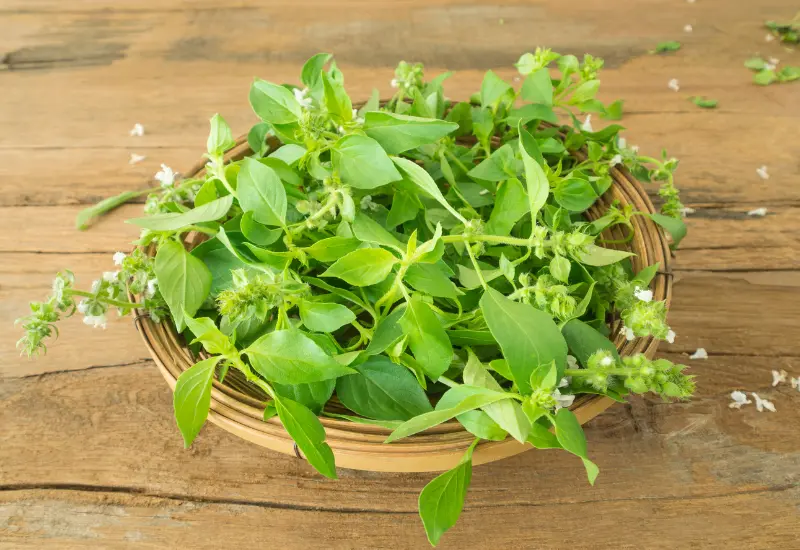
Bitter leaf soup, or Ofe Onugbu, holds a special place in Nigerian homes, often seen as more than just a meal but a cultural symbol of togetherness and tradition. Commonly served during family meals, celebrations, and gatherings, this beloved dish brings people together, creating an atmosphere of warmth and connection. Even with the rise of food delivery apps making it easier to enjoy meals at home, nothing beats the authentic, home-cooked experience of enjoying Ofe Onugbu with loved ones.
Bitter leaf soup is not only a beloved dish in Nigerian homes but also a nutritional powerhouse. Farm-fresh, mature bitter leaves are packed with essential nutrients that can greatly benefit your health. However, the method of preparation can significantly impact the nutritional value of this leafy green.
Nutritional Composition of Bitter Leaves
When you rinse and squeeze out the juice from 100g of farm-fresh, mature bitter leaves, you’re extracting a healthy dose of nutrients. Here’s an estimate of what you get from the juice:
- Carbohydrates: 11g
- Proteins: 5g
- Fiber: 6g
In addition to these macronutrients, bitter leaf juice is rich in vitamins A, C, and folate and minerals like calcium, iron, and potassium. It also contains alkaloids and flavonoids, which have antioxidant properties and contribute to boosting your immune system.
The Impact of Cooking on Bitter Leaf’s Nutrients
While bitter leaves are packed with nutritional goodness, cooking them the wrong way can cause a loss of essential vitamins and minerals. If you blanch or cook the leaves for more than three minutes, you’re likely to lose up to 30% of the vitamins present in the leaves, including vitamin C and folate. Furthermore, valuable minerals like potassium and calcium can leach into the water during cooking, reducing the nutritional value of your soup.
This happens because leafy vegetables, like bitter leaves, are sensitive to heat. The longer they’re exposed to heat, the more nutrients they lose. This is why it’s crucial to know the best way to prepare them in order to preserve their health benefits.
How to Prepare Bitter Leaf Soup to Retain Nutrients
To get the most out of your bitter leaves, it’s important to prepare them the right way:
- Rinse Thoroughly: Start by rinsing the bitter leaves thoroughly to remove any dirt or impurities. This helps you avoid using excess water during the cooking process.
- Quick Blanching: If you’re blanching the leaves, make sure you don’t exceed three minutes. This short exposure to hot water helps preserve the vitamins and minerals without causing significant nutrient loss.
- Use Minimal Water: When cooking the soup, try to use the least amount of water possible to reduce the leaching of minerals like potassium and calcium. If you can, use a lid to minimize the evaporation of nutrients.
- Avoid Overcooking: Overcooking bitter leaves can cause the breakdown of their nutrients. Keep the cooking time to a minimum, and cook the leaves just enough to soften them and blend them into your soup.
- Consider Steaming: Another effective method of cooking is steaming the bitter leaves. Steaming helps retain more of the vitamins and minerals compared to boiling, as it avoids direct contact with water.
Ingredients for Bitter Leaf Soup
- 2 cups of thoroughly washed bitter leaves (Onugbu)
- Cocoyams, peeled and boiled
- A variety of meats (such as beef, cow tripe, pomo, etc.)
- 2-3 tablespoons of palm oil
- 2 tablespoons of ground crayfish
- 1-2 pieces of dried fish (washed and deboned)
- 1-2 pieces of stockfish (soaked and softened)
- Seasoning cubes
- 1 teaspoon of ogiri (fermented locust beans)
- Chopped red bell pepper
- Salt to taste
- Meat stock (from the cooked meats)

Preparing Bitter Leaf Soup (Ofe Onugbu) With These Ingredients:
- Boil the Cocoyams: Start by boiling the cocoyams until they are soft. Once they’re done, spread them in a dish and let them cool down.
- Cook the Meats: Boil the assorted meats (beef, cow tripe, pomo, etc.) with seasoning cubes, salt, and a pinch of pepper until tender. Set aside the cooked meats along with the meat stock.
- Prepare the Cocoyam Paste: Pound the cooled cocoyams in a mortar until they form a smooth, stretchy paste.
- Cook the Base Ingredients: In a pot, pour in the meat stock and add some water if necessary to adjust the liquid. Add the dried fish, stockfish, and ground crayfish. Let everything cook together for about 5 minutes.
- Add the Pounded Cocoyam: Add small lumps of the pounded cocoyam paste into the pot. Allow the lumps to dissolve as the soup simmers over medium heat.
- Add Palm Oil and Ogiri: Once the soup begins to thicken from the cocoyam, stir in the palm oil and mix gently. Add the ogiri (fermented locust beans) to give the soup a rich, deep flavor.
- Incorporate the Bitter Leaves: Add the washed bitter leaves into the pot and let the soup simmer gently.
- Adjust Seasoning: Taste the soup and adjust the seasoning by adding more salt or seasoning cubes as needed.
- Final Cooking: Let the soup cook for another 5–7 minutes, ensuring that all the flavors are well combined. If the soup is too thick, you can add a little more water to achieve your desired consistency.
- Ready to Serve: Once the soup has reached the perfect thickness and flavor, your Ofe Onugbu is ready to serve. Enjoy!
Nutritional Value of Bitter Leaf Soup (Ofe Onugbu)
Bitter leaf soup (Ofe Onugbu) is not just a flavorful dish but a nutritional powerhouse that offers a range of health benefits. Here’s a breakdown of its key nutritional value based on its ingredients:
- Supports Healthy Blood Sugar Levels
Bitter leaf contains active plant compounds, including flavonoids and alkaloids, which help improve insulin and glucose management in the body. Regular consumption of bitter leaf soup, especially as part of a balanced diet, can naturally support the stabilization of blood sugar levels, making it an excellent choice for those managing diabetes or aiming for better metabolic health. - Boosts Immunity and Fights Inflammation
The rich vitamin content and potent antioxidants found in bitter leaves help to enhance the body’s immune system, boosting its natural defense against infections and illnesses. Additionally, these antioxidants help reduce inflammation, which is often a root cause of many chronic conditions. Including bitter leaf soup in your diet can strengthen your immunity while also combating harmful inflammation over time. - Strengthens Bones and Blood
Bitter leaves are packed with essential minerals like calcium and iron, which are vital for maintaining strong bones and promoting healthy blood circulation. Calcium supports bone density, while iron helps prevent anemia and supports steady energy levels. The combination of these minerals in bitter leaf soup makes it an excellent choice for improving bone and blood health. - Provides Sustained Energy and Digestive Support
Cocoyam, another key ingredient, contributes to the nutritional value of bitter leaf soup. It provides complex carbohydrates, offering slow-releasing energy that keeps you fuller for longer and helps sustain your energy throughout the day. Cocoyam is also rich in dietary fiber, promoting digestion and supporting gut health. This makes bitter leaf soup not only a delicious and hearty meal but also a nourishing, energy-sustaining option.
Other Uses of Bitter Leaves
Bitter leaves aren’t just for soup! These versatile leaves have a variety of other uses, making them a staple in many households beyond Ofe Onugbu. Here are some common ways to incorporate bitter leaves into your daily routine:
1. Medicinal Herbal Drinks
Bitter leaves are often squeezed to extract their juice, which is consumed as a natural remedy for ailments like malaria, high blood sugar, and digestive issues. While the fresh juice is known for its very bitter taste, it is highly valued for its powerful medicinal properties. Many people rely on this herbal remedy for its health benefits.
2. Other Soups and Stews
In addition to being the main ingredient in Ofe Onugbu, bitter leaves are sometimes used in smaller amounts in other indigenous soups like egusi soup, ogbono soup, and vegetable stews. The bitter, earthy flavor adds a unique balance to richer ingredients and enhances the overall taste of the dish. For more on popular Nigerian dishes and food trends, check out our Weekly Food Picks: What’s Hot in Nigerian Kitchens.
3. Tea Infusions
Some people boil bitter leaves lightly in water to make an herbal tea, believed to have detoxifying properties. Drinking this infusion is thought to help cleanse the body and boost the immune system, providing a refreshing and healthful way to enjoy the benefits of bitter leaves.
4. Traditional Tonics
In many households, a mixture of squeezed bitter leaf water and a pinch of salt is used as a traditional tonic. This concoction is often given to treat stomach upset or to aid digestion after heavy meals, making it a popular post-meal remedy.
5. Livestock Feed
In rural areas, animal rearers feed leftover bitter leaves to their livestock. The leaves are considered valuable for their nutritional content and are used to support the health and growth of animals.
What other creative uses do you have for bitter leaves in your home or community?
Where to Get Bitter Leaves
Looking for fresh, quality bitter leaves? Look no further than Muveet! Our direct access to farmers ensures that we provide farm-fresh bitter leaves and other fruits and vegetables all year round. Whether you’re ready to prepare your next Ofe Onugbu or just want to stock up your pantry, we’ve got you covered!
At Muveet, we make shopping for bitter leaf ingredients easier. Need your vegetables chopped or bell peppers prepped? Or perhaps you’d like us to debone your stockfish? With our extra services feature, we’ll take care of your groceries so you can spend less time cooking and more time enjoying your meal with loved ones.
Our prices are pocket-friendly, and we offer custom bundles for soups and stews to enhance your meal plans. Start shopping for your groceries today and boost your nutrient intake with just a click!
Shop now at Muveet—your one-stop shop for fresh groceries in Nigeria!






